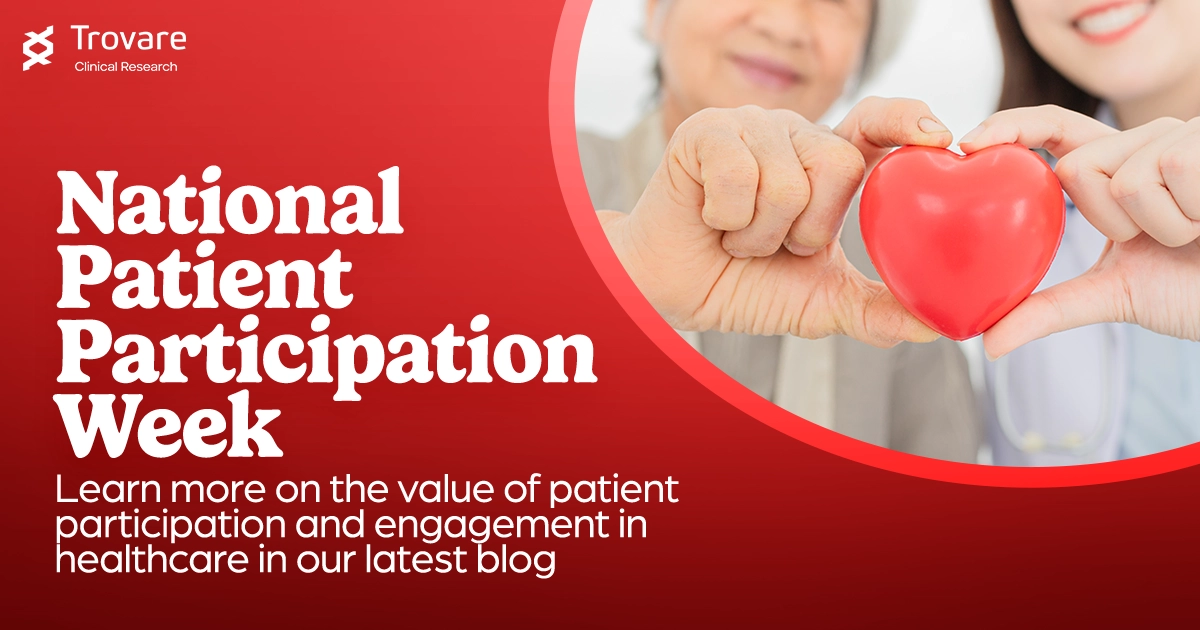Every year, National Patient Participation Week highlights the importance of patient involvement in the healthcare system. This week is dedicated to recognizing patients’ critical role in shaping and improving their healthcare experiences. But what exactly does patient participation mean, and why is it so valuable?
Understanding Patient Participation
Patient participation refers to the active involvement of patients in their own healthcare decisions and in developing healthcare policies and services. This can take many forms, from patients being more involved in discussions about their treatment options to participating in patient groups that provide feedback to healthcare providers.
The Value of Patient Participation
- Improved Health Outcomes:
When patients are involved in their care, they are more likely to understand their conditions and follow treatment plans effectively. This leads to better health outcomes and reduces the likelihood of complications.
- Enhanced Patient Satisfaction:
Engaging patients in the decision-making process makes them feel valued and respected. This can significantly improve their satisfaction with the care they receive and foster a more positive relationship with healthcare providers.
- Better Quality of Care:
Patients provide unique insights into how healthcare services can be improved. Their feedback helps healthcare organizations identify areas that need attention, enhancing the quality of care provided. Patients’ firsthand experiences offer a practical perspective that can lead to more patient-centered care practices.
- Empowerment and Education:
Patient participation empowers individuals by giving them a voice in their healthcare journey. It also serves as an educational tool, increasing patients’ knowledge about their health conditions and the healthcare system, enabling them to make more informed decisions.
- Increased Trust and Transparency:
Open communication and involvement in healthcare decisions build trust between patients and providers. Transparency in the healthcare process fosters collaboration, making patients more likely to adhere to medical advice and engage actively in their health management.
- Cost Efficiency:
Engaged patients are more likely to effectively prevent and manage chronic conditions, leading to fewer hospital visits and reduced healthcare costs. Preventive care and early intervention, driven by active patient participation, can alleviate the financial burden on the healthcare system.
How to Encourage Patient Participation
- Educational Programs:
Healthcare providers can offer workshops and resources to help patients better understand their conditions and treatment options. - Patient Advisory Councils:
Establishing councils where patients can share their experiences and suggest improvements can be a valuable feedback mechanism. - Shared Decision-Making Tools:
Implementing shared decision-making tools can help patients feel more involved in their care. - Accessible Information:
Ensuring that health information is easily accessible and understandable empowers patients to take charge of their health.
Celebrating National Patient Participation Week
National Patient Participation Week is a time to celebrate the progress made in patient engagement and to encourage further involvement. Healthcare organizations can use this week to highlight success stories, promote educational events, and showcase how patient feedback has led to tangible improvements in care.
As we celebrate this important week, let’s remember that a healthcare system that values and incorporates patient participation is more effective, compassionate, and responsive to the needs of those it serves. By continuing to foster an environment where patients are active participants, we can achieve a healthier, more equitable future for all.
About Us
Trovaré Clinical Research is an independent, multi-specialty research facility in Bakersfield, California. Learn more about current and future studies and how to get involved today! Qualified participants may see a study doctor at no cost, have access to study medications, and receive compensation for time and travel. Click here to learn more, or call us at 661-663-3096.

